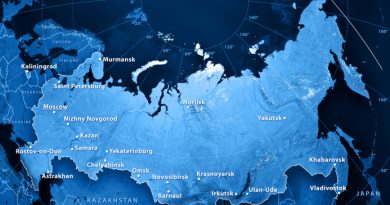Community in Canada’s Northwest Territories explores more solar, wind power to offset diesel needs

The Lutselk’e Dene First Nation in the N.W.T. is working on a project to expand renewable energy generation in the community, bringing training and jobs for residents — and enough solar and wind power to offset most of the community’s diesel needs.
On the shortest day of the year, Lutselk’e gets just five hours of daylight. But the community of about 300 people has operated a smaller solar array for years — thanks to a surfeit of sun in the summer months, Lutselk’e gets enough solar energy each year to make power generation viable.
Haroon Bhatti, the innovations manager for Denesoline Corporation, says the infrastructure for more solar panels is set to arrive in the summer. As Lutselk’e’s business arm, the corporation is helping to build a clean-energy power plant — a combination of wind turbines and solar generators that should cover upward of 70 per cent of the community’s energy needs.
Bhatti said by 2026 they hope to wean the community off diesel and only use it as a backup.
Virtual training for local operators
The plan is to train at least 12 community members through online courses to operate the plant. Eventually, those operators could help introduce similar technology to more N.W.T. communities.
“It definitely has a huge impact on capacity-building in Lutselk’e,” Bhatti said.
“[It] will enable community members to take the community’s energy needs into their own hands. They’ll be able to operate this hybrid renewable energy system, they’ll be able to see what energy is being used [and] where energy is being stored. They’ll be able to even install and maintain it in Lutselk’e.”
The project is a partnership between the British Columbia Institute of Technology, the Lutsel K’e Dene First Nation and the Digital Technology Supercluster, a B.C.-based organization that looks at how to use digital technologies to innovate.
Shawn Gervais, the vice-president of foresight and talent development for Digital Technology Supercluster, said his organization is setting up a virtual training platform for the people who will eventually operate the power plant.
He said the training will be a year-long project. At the end, they’ll take a look back to see what they’ve learned and whether they can apply it to other remote communities.
“Part of this project is not only the delivery of the training, but the creation of a virtual platform that allows people in remote locations to basically train on physical infrastructure,” he explained.
“If we can expand the capacity of Indigenous communities and other remote communities to maintain their own infrastructure as much as possible without having to fly in a specialist, that will make a world of difference.”
Trained to troubleshoot
The operators will be trained to troubleshoot the power plant if things go wrong. They’ll also make sure the panels are aligned correctly, clean the array, make sure the wind turbines are rotating and learn the ins and outs of the artificial intelligence system that switches between the two types of power.
“If it’s windy one day, then the wind turbines would be initiated and that energy will be stored. If it’s less windy one day and more sunny, then the solar panels would be initiated,” Bhatti said of that system.
“It will switch back and forth between these two systems and will become more efficient over time — it will pick up trends in the weather, and after a couple years, it will have a database of information on when it’s sunny, when it’s windy, and will act accordingly.”
Bhatti said the project was funded with $1.2 million from Natural Resources Canada.
-With files from Avery Zingel
Related stories from around the North:
Canada: Community in northern Quebec to make the jump from diesel to hydroelectricity, CBC News
Finland: The world could transition entirely to cheap, safe renewable energy before 2050: Finnish study, Yle News
Norway: Are Norway’s energy policies caught between ‘black gold’ & green ambitions?, Blog by Marc Lanteigne
Russia: Italian firm to build giant wind farm in northwestern Russia, The Independent Barents Observer
Sweden: Sweden’s solar industry sees bright future despite shrinking subsidies, Radio Sweden
United States: Alaska’s Northwest Arctic Borough gets $2 million tribal energy grant, Alaska Public Media



